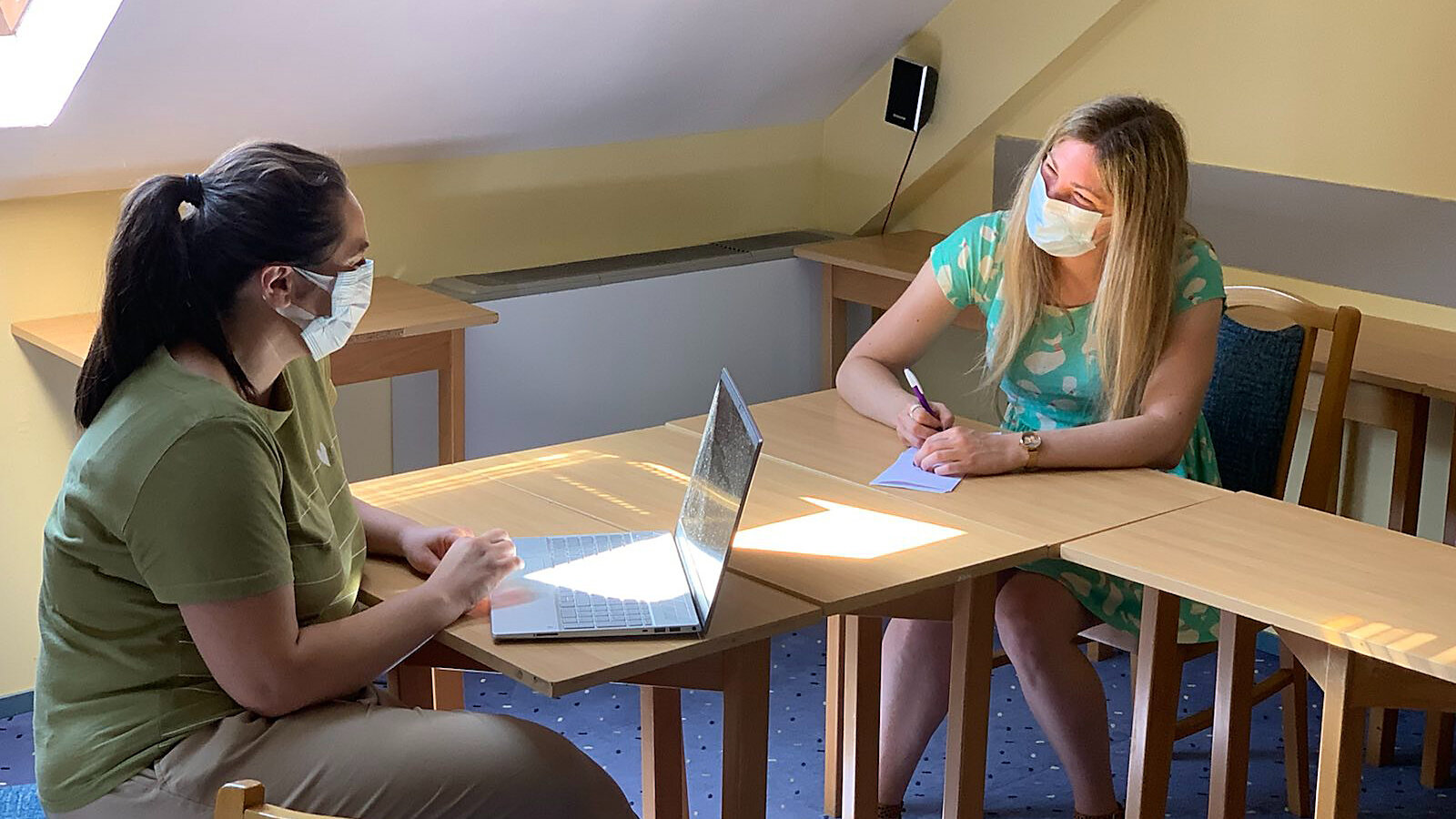Creating Confidence and Trust in Southeast Europe
Students and researchers from Serbia and North Macedonia joined at the Summer School “Comparing Confidence and Trust Online and Offline” in Palić, Serbia
-

Students from North Macedonia (left: Maja Joshevska-Petrushevska) and Serbia (right: Radmila Palinkašević) cooperated on different tasks during the Summer School. Photo: Sven Albrecht
Sixteen young and experienced scientists gathered in Palić, Serbia for the hybrid Summer School “Comparing Confidence and Trust Online and Offline” (20-28 August), part of the DAAD program Academic dialogue with countries of the Western Balkans submitted by Prof. Schmied, Emeritus of English Language & Linguistics at Chemnitz University of Technology. In the intercultural atmosphere of a small town near the Hungarian border, the partners discussed issues of constructing trust in online media and academic contexts through linguistic means like modal verbs and metaphors.
The Bachelor and Master’s students presented their countries and universities in groups and even after ten years of project history, they showed new perspectives on Serbia and North Macedonia. In addition, researchers from the universities of Niš and Belgrade / Teacher Training College Vršac (Serbia) as well as Skopje (N. Macedonia) gave lectures on the construction of confidence and trust in online and offline media. Aleksandra Janić (Niš) introduced modality and its use to express uncertainty and obligation in Serbian news discourse. Jelena Prtljaga (Vršac) extended the discussion on modality as a means to frame the news on recent controversial topics on the local level (the Lithium mine in Serbia) and on the global level (the Russia-Ukraine conflict). Jovanka Lazarevska-Stanchevska (Skopje) showed how breaking news headlines use metaphors like “a tornado of Covid cases” to evoke interest and conducted a survey on the students’ emotions (fear, anger, joy) in response to these headlines.
PhD students Marina Ivanova and Sven Albrecht from Chemnitz University of Technology introduced corpus analysis software for exploring tweets on the Coronavirus in three hands-on workshops. The Summer School participants used the free and widespread text analysis tool AntConc on a dataset of Tweets which discuss articles from the Coronavirus corpus. Their presentations accounted for the use of frequent keywords, modal expressions and framing through conceptual metaphors in the tweets and the news headlines.
The students also practiced using e-learning tools to create quizzes on the presentations and trips from the Summer School, to conduct rapid surveys evaluating the Summer School activities, and to compile brainstorming boards with materials and ideas on the project topic. The Summer School also included a discussion on the students’ application essays, which will be turned into publications for the edited volume REAL 19.
The team was warmly welcomed at the Hungarian TV and radio station Pannon RTV located in Subotica, Serbia, where they received first-hand insights on journalistic research and writing. The visits to the “Interetno” festival and the tours to the art nouveau synagogue and town hall in Subotica felt like “going abroad” even for the Serbian students.
The final evaluation showed that the Summer School was cherished by all participants for the opportunity to gain new skills, develop ideas on how to construct confidence in online media and academia, meet new people, and bond with the neighbouring cultures. The teachers got new requests for workshops on skills like respectful referencing, which is taken for granted in research, but difficult to acquire by students, as they need to be acquainted with the principles of authorship attribution and citation software. Therefore, we want to develop the notion of respect in journalistic and academic writing further and hope that the project will be continued in 2023.
(Author: Marina Ivanova)
Matthias Fejes
20.09.2022




